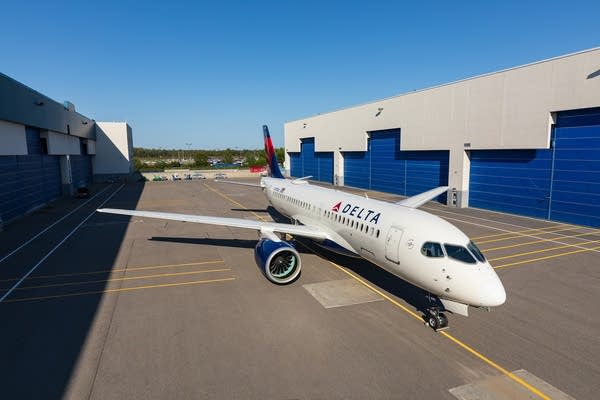Delta's schedule for advanced narrow-body includes MSP

Delta's new A220 narrowbody jet will link MSP with Dallas and Houston starting next summer.
Courtesy of Delta Airline
Go Deeper.
Create an account or log in to save stories.
Like this?
Thanks for liking this story! We have added it to a list of your favorite stories.


